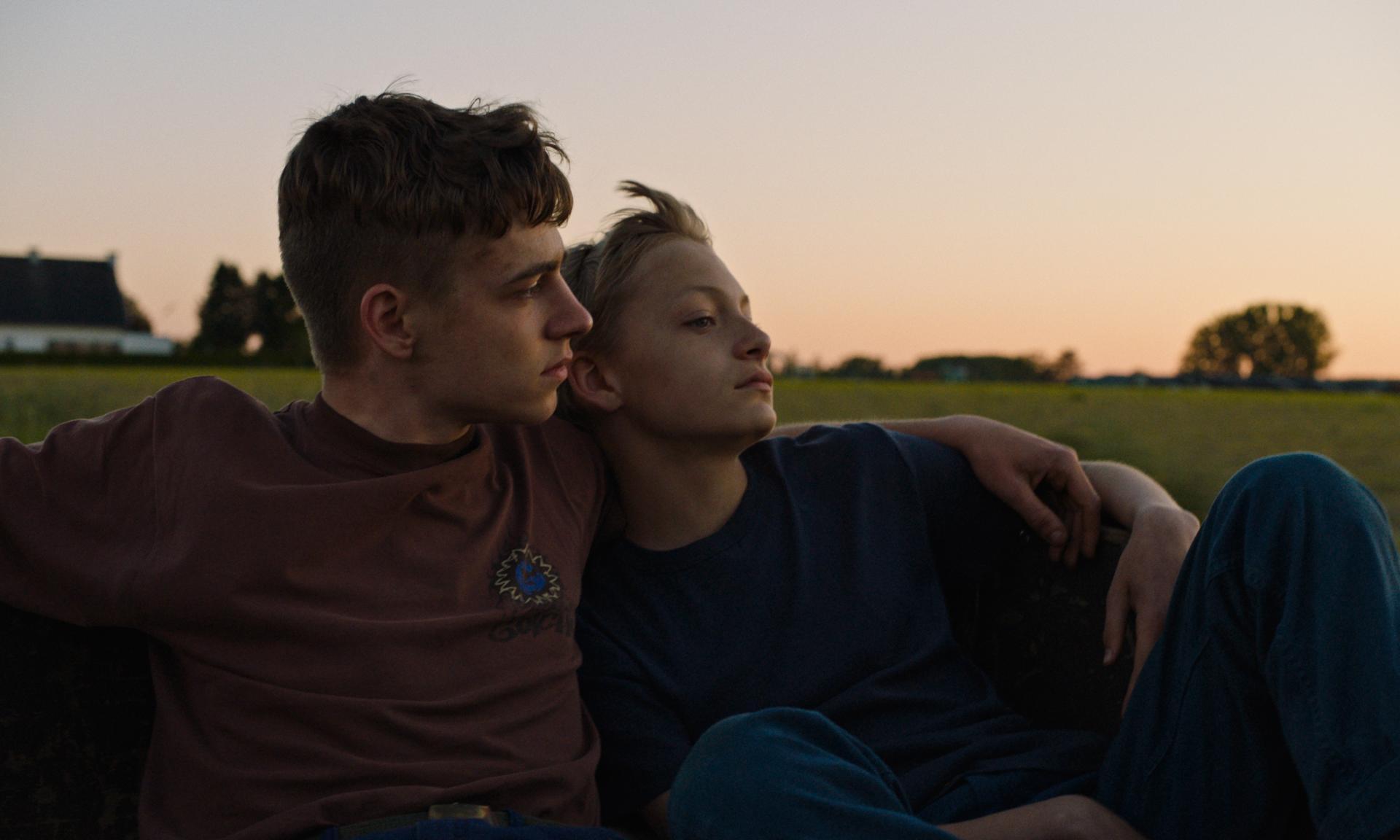★★★★☆
Lukas Dhont’s 2018 directorial debut, Girl, is a wonderful example of best intentions going terribly wrong. The film cast a cis-male actor in the role of Lara, a teenage transgender girl and an aspiring ballerina. While the film set out to tell a story through the lens of empathy, the casting and the film’s later scenes of self-mutilation were rightfully deemed misguided and offensive.
Dhont’s talent, however, was evident. His direction and visual storytelling were incomparable. While the premise for his second film, Close, at first seems equally problematic, Dhont finds a way of telling the story right now.
Léo and Rémi are two carefree 13-year-olds. Their days off from school are spent exploring their small world, running through fields and riding their bikes. They’re remarkably close; they have multiple sleepovers where they snuggle up together, and it seems like nothing could break them apart.
Until a girl at their school comments on how close the two are, asking if they are together. Léo is immediately uncomfortable, insisting they’re just best friends and brothers. His discomfort drives him to push Rémi away slowly, and their friendship begins to unravel, with devastating consequences.

It’s important to note that while Close feels distinctly queer, this is not a film about sexuality. Dhont is not interested in speculating whether these kids identify as gay, queer, straight or bi; they’re just kids. They’re innocent, and everything is still play to them, but Léo especially is increasingly aware of how people perceive him and how that might affect his life.
Dhont beautifully and precisely captures the two boys’ innocence. Close is told with sensitivity and genuine curiosity. Dhont’s camera constantly observes the most minute changes on Léo’s face. While most films are edited these days furiously, Dhont often allows his characters to breathe and exist organically within scenes.
READ MORE: ★★★☆☆ Blue Jean review | Impressive, but flawed debut
Dhont also draws mesmerising performances from his young cast. The focus is on Léo, and first-time actor Eden Dambrine gives a tremendously raw and honest performance. Much of the film’s emotional impact depends on his performance. Whether it’s natural talent or Dhont’s abilities as a director, Dambrine pulls it off much better than you would imagine a complete newbie could.
Gustav De Waele is beautifully understated in a role with little room to expand. Émilie Dequenne is also commendable as Rémi’s mother, with whom Léo forms a special bond.

There is a valid, nuanced conversation to be had about why we are still telling so many devastating queer stories. The heartbreak in these films often comes from suffering or death and often feels unnecessary. Dhont skillfully manipulates the audience’s feelings throughout Close.
READ MORE: ★★★★☆ Joyland review | Groundbreaking Pakistani trans movie challenges tradition
It’s also worth asking why the story was told through Léo’s eyes. Perhaps this is to highlight the effects of internalised homophobia, but Rémi is a frustratingly quiet character. Giving him more of a voice would have possibly benefited Close’s simplified narrative and themes. Regardless, Close is a work of genuine empathy. From Dhont’s direction to the performances to the dazzling visuals, Close is a treat.
Close is in cinemas 3 March.




